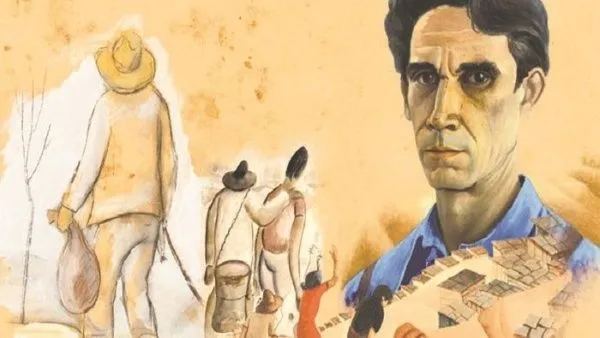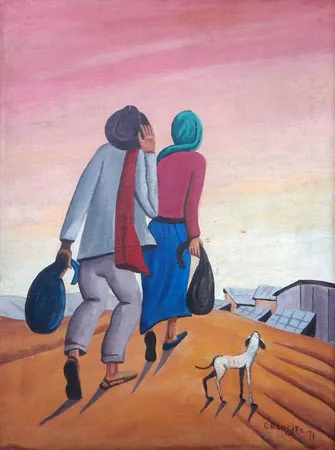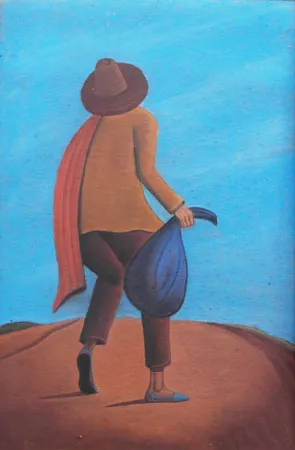Saludos estimado amigos de Hive, Abrazos fraternos¡ espero estén muy bien¡ Aquí les dejo mi participación honoraria en el soloescribe concurso #05.
Hace ya tiempo del primer texto de esta serie; y es que, La crónica, mucho más que la escritura creativa, requiere de indagación y obliga al cronista a fijar postura respecto a la visión desde donde se aproximará al tema-sujeto (Persona, lugar, suceso) y este proceso toma tiempo, demanda de la pausa necesaria. Al final, lo expuesto solo será otro pedacito de perspectiva.
Greetings dear friends of Hive, fraternal hugs, I hope you are very well!
It has been a long time since the first text of this series; and the fact is that, The chronicle, much more than creative writing, requires inquiry and forces the chronicler to set a position regarding the vision from where he will approach the subject-subject (Person, place, event) and this process takes time, it demands the necessary pause. In the end, what is exposed will only be another piece of perspective.
Hoy quiero escribir sobre César Rengifo, Aquel que "era tan delgadito como el silbido del tiempo" según el cantar de Alí Primera y quien en su inquieto transitar por este mundo no se conformó con verlo sino que dibujó con trazos de protesta su visión de cuánta tierra pisó.
Today I want to write about César Rengifo, the one who "was as thin as the whistle of time" according to the song of Alí Primera and who in his restless journey through this world was not satisfied with just seeing it, but drew with protest strokes his vision of how much land he stepped on.

A Rengifo lo que es de César.
Nació un 14 de Mayo, como nacen los hombres, con un grito de lucha al respirar. Su padre recién había muerto víctima de la tuberculosis y pocos meses después su madre también sucumbiría ante la misma enfermedad, así se irían sucediendo tempranas pérdidas incluyendo la de cuatro de sus hermanos. La pérdida fue la madrina de bautismo de este ser quien siempre llevó en su interioridad una suerte de recogimiento que tal vez le permitió intuir el valor de la vida, el respirar y el grito ( Mientras tecleo no puedo evitar pensar en Jhon Holloway, pero es harina de otro costal )
To Rengifo what belongs to Cesar.
He was born on May 14, as men are born, with a cry of struggle when he breathed. His father had just died a victim of tuberculosis and a few months later his mother would also succumb to the same disease, so early losses would follow, including that of four of his siblings. The loss was the godmother of baptism of this being who always carried in his interiority a kind of recollection that perhaps allowed him to intuit the value of life, breathing and screaming (As I type I can not help but think of John Holloway, but that is another matter).
Dicen que la sensibilidad es la condición de todo artista para crear. Claro, atino a pensar que hay tantas condiciones como artistas y artes. No obstante, la capacidad de emocionarse es necesaria para causar emoción en otros, de otra manera qué seríamos: Inteligencias artificiales en un mundo de polímeros y sacarosas. Rengifo sentía, por él y por los otros. Su sensibilidad social marcó toda su obra inclinada hacia la pintura y la dramaturgia, las cuales estudió con propiedad. Graduado de la escuela de artes, con un poco más de 20 años, aprovechó oportunidades de estudio para ir a Chile y luego a México. Allí conoció el Muralismo y a su máximo representante Diego Rivera y desde entonces el tema de lo social signaría toda su creación artística. En cuanto al teatro, desarrolló una densa obra impregnada de las mismas ideas. La exaltación de nuestros originarios, los héroes (no los de blanco corcel del romanticismo clásico) héroes de piel y huesos que regaron los campos con su sangre y por supuesto el costumbrismo y el desarraigo siempre con una postura crítica.
They say that sensitivity is the condition for every artist to create. Of course, I would think that there are as many conditions as there are artists and arts. However, the ability to be moved is necessary to cause emotion in others, otherwise what would we be: artificial intelligences in a world of polymers and saccharose. Rengifo felt, for himself and for others. His social sensitivity marked all his work, inclined towards painting and drama, both of which he studied with propriety. After graduating from art school at the age of 20, he took advantage of study opportunities to go to Chile and then to Mexico. There he met Muralism and its maximum representative Diego Rivera and since then the social theme would mark all his artistic creation. As for theater, he developed a dense work impregnated with the same ideas. The exaltation of our natives, the heroes (not those of the white steed of classical romanticism) heroes of skin and bones that watered the fields with their blood and of course the costumbrismo and the uprooting always with a critical stance.

Autoretrato - Fuente: Dominio público.
Sin ánimo de incursionar en erudiciones, podríamos mencionar que Rengifo es un exponente de "El realismo social"en Venezuela, esto solo si nos ajustamos a los temas: el desarraigo, la mudanza, la pobreza y demás situaciones desprendidas de la explotación petrolera. Sin embargo, vemos en su trabajo huellas impresionistas que nos sumergen en la imágen y nos conectan con los personajes o yo me atrevería a decir con las humanidades plasmadas allí.
Without wishing to venture into erudition, we could mention that Rengifo is an exponent of "Social Realism" in Venezuela, this only if we adjust ourselves to the themes: uprooting, moving, poverty and other situations arising from oil exploitation. However, we see in his work impressionistic traces that submerge us in the image and connect us with the characters or I would dare to say with the humanities captured there.

El espejismo de las torres, óleo sobre lienzo, 92x92 cms, año 1953 - Fuente: Dominio público.

Óleo sobre lienzo, 39,5x29,5 cms, año 1971 - Fuente: Dominio público

Personaje, pastel sobre cartulina, 80x53 cms, año 1971 -Fuente: Dominio público
El juego que hace el autor con los elementos materiales: Las lejanas torres petroleras, casa de cartón (Ranchos), la ropa de faena, los atados o sacos, elementos enmarcados en cielos ocres y terrenos agrestes sin señales de verde, con árboles desnudos y perros famélicos. La intención es exponer las vicisitudes de la gente. Hombre y mujer, no distingue Rengifo, ambos se ven de espaldas, encorvados, yéndose con el cansancio en el saco (la migración del campo a la ciudad o el llamado éxodo petrolero) la profunda sensibilidad que transmite el autor le aleja de lo panfletario y florece el arte pero no por el arte mismo sino con una razón social a decir de Ludovico Silva y cuando pensamos que solo hay desolación nos regala Rengifo un cielo azul, que no ya sobre ranchos o torres petroleras sino sobre montañas, como vaticinando la vuelta del campesino a su montaña. O las flores, en manos de las niñas que las regalan con euforia o simplemente las sostienen semi escondidas esperando el momento de darlas. César Rengifo retrató con su obra a la gente. Pintor popular no de caminos, sí de caminantes.
The author plays with the material elements: the distant oil towers, the cardboard house (Ranchos), the work clothes, the bundles or sacks, elements framed in ocher skies and rough terrain with no signs of green, with bare trees and starving dogs. The intention is to expose the vicissitudes of the people. Man and woman, Rengifo does not distinguish, both are seen with their backs turned, hunched over, leaving with fatigue in their sacks (the migration from the countryside to the city or the so-called oil exodus) the deep sensibility that the author transmits moves him away from the pamphletary and art flourishes, but not for art itself but with a social reason, according to [Ludovico Silva] and when we think that there is only desolation, Rengifo gives us a blue sky, not over ranches or oil towers but over mountains, as if predicting the return of the peasant to his mountain. Or the flowers, in the hands of the girls who give them away with euphoria or simply hold them semi-hidden waiting for the moment to give them. César Rengifo portrayed the people with his work. Popular painter not of roads, but of walkers.
"AL César lo que es de César" reza la prédica, "Al pueblo lo que es de César" compuso Alí, A Rengifo lo que es de César acuño yo. Difícilmente encontramos en un solo artista la complejidad e integralidad que poseía Rengifo, quien supo poner su arte al servicio de su causa social más allá de las posiciones políticas centrándose en lo humano.
Les dejo, para que vayan oyendo la canción que dedicara Alí a Rengifo. Nos leemos en otra vuelta de página.
"To Caesar what is Caesar's" goes the preaching, "To the people what is Caesar's" composed Ali, to Rengifo what is Caesar's I coin. It is difficult to find in a single artist the complexity and integrity that Rengifo possessed, who knew how to put his art at the service of his social cause beyond political positions, focusing on the human.
I leave you to listen to the song dedicated by Alí to Rengifo. See you in another page turn.
Al Pueblo lo que es de César - Alí Primera
Texto original de @joalheal para todos los efectos
Aunque las imágenes mostradas son de dominio público aquí les dejamos los sitios de dónde fueron obtenidas.
https://www.ebefavenezuela.com/rengifo_cesar.html
Translated with DeepL.com (free version)

